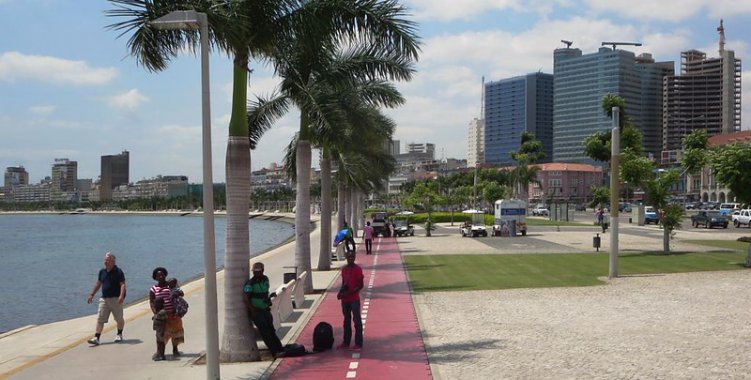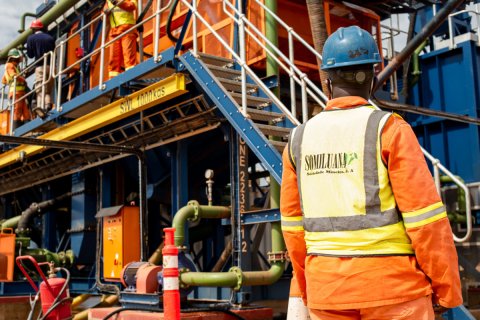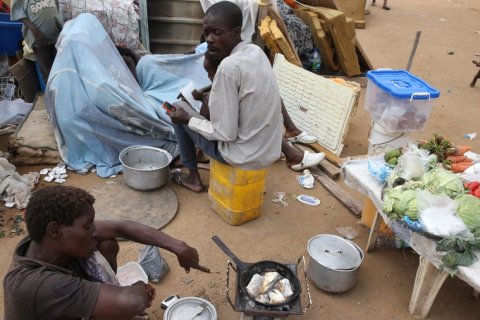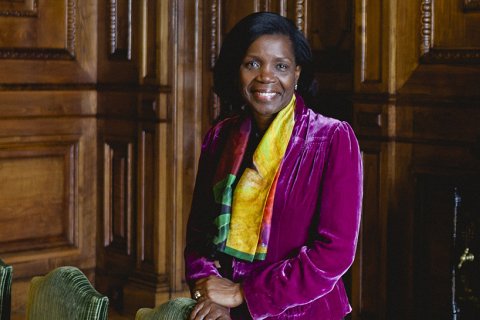The senior associate of the Sub-Saharan Africa team at the Risk Advisory Group considers, in an article in InvestmentMonitor, that foreign investors who have reconnected with Africa after the continent's economic crisis caused by covid-19, will now be "attracted by attractive returns offered by projects large-scale infrastructure projects, often promoted before elections".
"When disputing contracts at this time, investors can face two main risks: high corruption risks, as the bidding processes become rushed, and a fragile political context that threatens the progression of the business", warns, however, Laura Head.
As voters are eager to see their political leaders pursue national development goals and increase employment opportunities, "they tend to make big promises about infrastructure in the run-up to the elections, hoping to strengthen their prospects at the polls", she says.
In this context, he stresses that "a case in point at the moment is that of the President, João Lourenço, promising a series of large-scale projects, including multibillion-dollar solar parks, to help diversify the country's economy, while preparing for a presidential vote on the 24th of August".
The analyst also alerts to the fact that in the rush to close deals before the start of the voting, some leaders can also speed up the awards processes. But "potential candidates need to be aware of heightened compliance risks given the possibility of procedural shortcuts and incentives to sign contracts."
"In short, at election time, due process in business transactions is less likely to be followed," she stresses.
Furthermore, instead of participating in a competitive auction, at the moment "investors may be invited to direct opaque negotiations" and "the lack of visibility increases the potential for bribery and other forms of corruption", she emphasizes.
"There is also the possibility that a tender may be issued without internal government agreement on the criteria for selecting the contractor, which could lead to future doubts about the integrity of the business," she points out.
And even in open bidding processes, the successful investor may be vulnerable "looking for a forced shareholding, where they are invited to associate with a local company, possibly owned by individuals with political connections or even representatives of government officials".
Then "there are post-transaction risks linked to the results of the polls." And if in the past, African elections "were often predictable", given the advantages of those in power, in recent years "a shift to more democratic governance across the continent has seen opposition figures triumph in presidential elections with increasing frequency", considers the analyst.
In this scenario, "investors face vulnerabilities", either because the elections allow continuity or because they dictate "peaceful transfers of power".
But even when incumbents manage to hold on after elections, "investors may find that the pace at which decisions were made before elections slows sharply as cumbersome and overburdened bureaucracies catch their breath," she adds.
"Leaders with renewed terms may also want to reorganize their administrations – which can take time, especially if complex political factors need to be weighed and accommodated – or be sidetracked by allegations of post-election fraud. , with costly delays in infrastructure projects", highlights the Risk Advisory Group analyst.
However, Laura Seara Cabeça considers that "a change of government always represents high risks that recent projects and concession contracts may be renegotiated", if not "completely canceled".
"These risks are heightened by weak governance structures, institutional challenges, as well as polarized political environments," she points out.
And for the analyst, "there are similar risks when a holder [of power] makes way for an ally of the same party, especially in one-party states, where there are often great differences between factions within the parties in power", she underlines, returning to the Angolan case.
The current president, after replacing José Eduardo dos Santos as Angola's head of state in 2017, "turned on members of the former leader's family, canceling contracts signed with companies linked to his daughter Isabel [dos Santos]", she remembers.
In this scenario, the analyst advises investors to be extra cautious.
Angola holds its fifth general election on 24 August, with eight competing political forces taking place.







